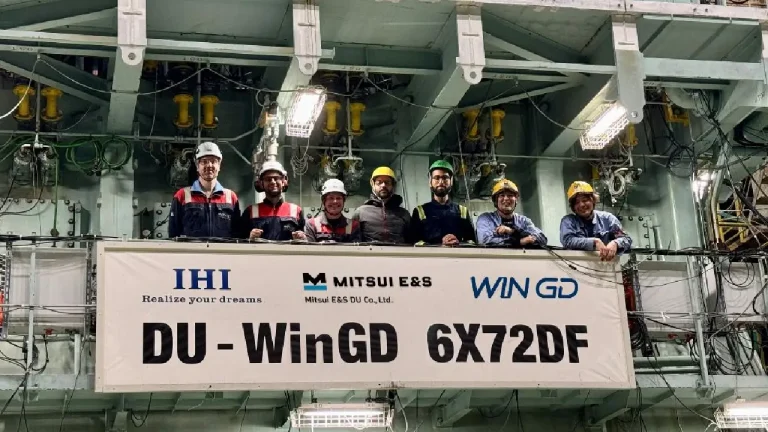Swiss marine power company WinGD's variable compression ratio (VCR) technology will be trialled on board ships of global shipping company CMA CGM. The collaboration marks the first on-site trial of the new dual-fuel engine technology and follows successful factory trials which showed significant efficiency gains on both diesel and LNG fuel.
VCR dynamically adjusts the cylinder compression ratio of X-DF dual fuel engines depending on fuel choice, ambient conditions and engine load to reduce fuel consumption and greenhouse gas emissions. The innovative WinGD technology is the first to feature adjustable compression ratio (typically a fixed design parameter) in a marine engine.
The CMA CGM project consists of a lengthy period of full-scale testing to verify operability and reliability. On-board testing is scheduled to begin after the vessel is docked in September, with the VCR being fitted to the vessel's WinGD RT‑flex50DF dual-fuel engine.
CMA CGM is committed to implementing sustainable solutions across its fleet, both on newbuilds and existing ships, to achieve net zero carbon by 2050. WinGD's VCR technology is a new development that helps reduce fuel consumption on dual-fuel engines.
Sebastian Hensel, vice president of research and development at WinGD, said: “Partnering with leading shipping companies is essential to prove the benefits of new technologies in real-life operating conditions. We applaud CMA CGM's vision to advance sustainable shipping and their recognition of the VCR's potential to further these ambitions.”
The increased operational flexibility, fuel savings and reduced methane slip enabled by VCR technology will support shipowners and operators on their decarbonisation path. WinGD envisages a transition from fossil fuels to synthetic or biomass-derived LNG, accompanied by continuous improvements in engine and fuel production and methane emissions from the entire supply chain.

